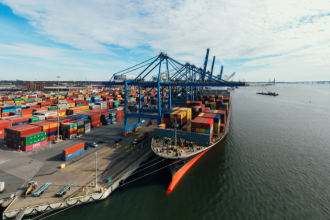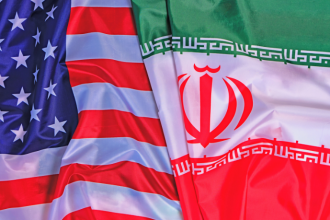The Trump administration trade talks with China have taken center stage once again as officials from both nations meet in London in an effort to stabilize deteriorating economic relations. With tensions rising and tariffs taking a toll on both economies, the Trump administration trade talks with China come at a critical juncture. President Donald Trump’s unpredictable style and China’s rigid state capitalist policies have made consensus elusive, yet both sides are under pressure to reach at least a temporary agreement. The stakes are high as business leaders and political observers monitor the outcome of these renewed negotiations.
The Trump administration trade talks with China follow weeks of economic friction marked by increased restrictions, declining exports, and renewed geopolitical rivalry. While a brief truce had previously been agreed upon, that pause now appears fragile. Trump’s team, including Treasury Secretary Scott Bessent and Commerce Secretary Howard Lutnick, arrived in London with a clear mission to address concerns over rare earth exports and reestablish a path for sustainable economic cooperation. China, represented by Vice Premier He Lifeng, remains firm in its negotiating posture, aiming to secure favorable terms while protecting its domestic industrial strategy.
A significant point of contention in the Trump administration trade talks with China involves access to rare earth minerals. These critical resources are essential for modern technologies, from electric vehicles to defense systems. The United States has accused China of backtracking on previous commitments to loosen export restrictions, raising alarm within strategic industries. As rare earths are almost entirely processed by China, the Trump administration trade talks with China are seen as a potential turning point for supply chain diversification and national security.
Beyond rare earths, the Trump administration trade talks with China are addressing broader concerns about intellectual property theft, forced technology transfers, and trade imbalances. U.S. negotiators insist that structural reforms are necessary for a fair playing field, while China pushes back against what it sees as interference in its internal development model. These underlying tensions make the Trump administration trade talks with China not only economically significant but also a reflection of the growing ideological rift between the two superpowers.
The Trump administration trade talks with China are also politically charged, coming as President Trump faces scrutiny for his domestic decisions and international strategy. Critics argue that the talks are being used to distract from other controversies, including the controversial deployment of the National Guard to California without state approval. Supporters, however, believe the Trump administration trade talks with China demonstrate a firm stance against foreign exploitation and show the president’s commitment to protecting American industries and jobs.
Markets have responded cautiously to the Trump administration trade talks with China. While investors are hopeful for progress, the unpredictability of Trump’s rhetoric and China’s strategic ambiguity create uncertainty. Economic indicators show that while Chinese exports have remained robust, trade with the United States has plummeted, raising concerns about long-term economic fallout. Businesses on both sides of the Pacific are urging a resolution to avoid deeper disruptions and restore stability to global supply chains.
Despite the importance of the Trump administration trade talks with China, expectations remain modest. Analysts predict that only limited agreements will emerge from the London meetings, with fundamental disputes left unresolved. The structural nature of the disagreement suggests that the Trump administration trade talks with China may become a recurring feature of international diplomacy, rather than a short-term event. As both nations compete for global influence, trade will likely remain a battlefield of strategic contestation.
In the end, the Trump administration trade talks with China are more than just economic negotiations. They represent a test of political will, diplomatic skill, and global leadership. Whether these talks lead to lasting compromise or further conflict will depend on the ability of both parties to bridge their differences and prioritize mutual benefit over unilateral advantage. For now, the world watches as the Trump administration trade talks with China unfold under intense scrutiny and with consequences that could shape international relations for years to come.
Author: Clodayre Daine









